Lenovo Chromebook Duet 11 Gen 9 vs Apple iPad Air 13 (M2): Which tablet is a better laptop replacement?
Can Lenovo's budget ChromeOS tablet take on the iPad Air?
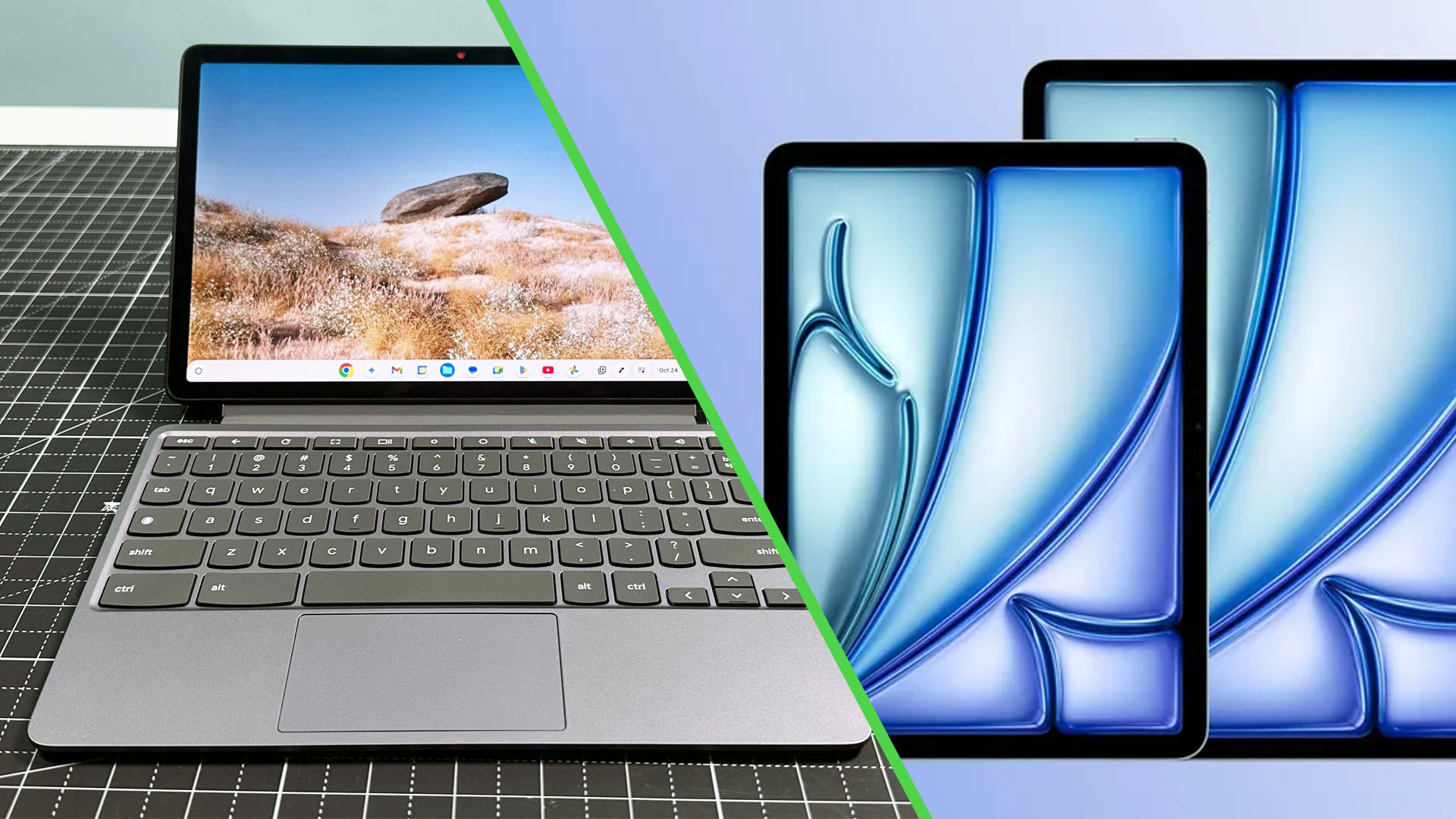
Lenovo's refreshed Chromebook Duet 11 Gen 9 is an incredibly portable ChromeOS tablet and offers solid battery life and performance despite its humble specs and $359 starting price. So naturally we wanted to put it to the test against Apple's budget tablet, the 2024 iPad Air (M2).
Both tablets are light and thin, with minimal ports, and are priced under $600. Both tablets offer a set of compromises to get you the best value for your money. We often recommend both for students, as you can get them at an even better price with education pricing and back-to-school sales.
But which tablet is actually the better buy? Let's break it down.
Lenovo Chromebook Duet 11 Gen 9 vs Apple iPad Air 13 (M2): Pricing and configurations
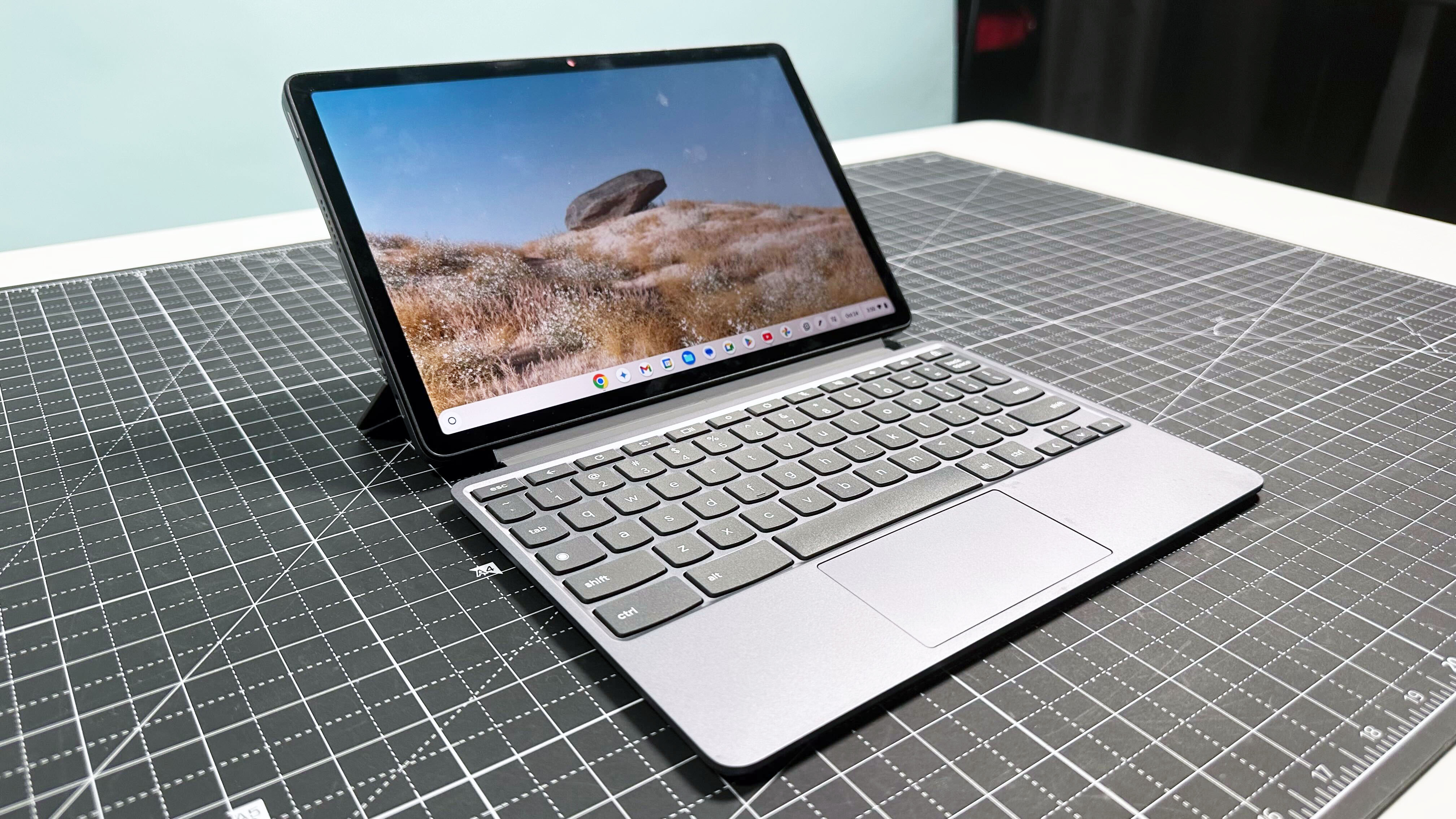
Most folks don't have an unlimited budget for laptops and tablets, and no group of computer shoppers needs a good deal quite like students.
The Chromebook Duet's base configuration costs just $359.99. This version features a MediaTek Kompanio 838 Processor, integrated MediaTek Mali-G57 MC3 graphics, 4GB of memory, 64GB of SSD storage, a 10.95-inch 60Hz WUXGA (1,920 x 1,200) IPS display, a folio keyboard case, and Lenovo USI Pen 2. You can upgrade to a 128GB model which costs $379 if you forgo the Lenovo USI Pen 2, or $399.99 with the stylus.
The base iPad Air (M2) costs $599 and includes an Apple M2 8-core CPU, Apple M2 9-core GPU, 8GB of memory, 128GB of SSD storage, and an 11-inch Liquid Retina display. The iPad Air also comes in a 13-inch model, which starts at $799. You can upgrade the storage up to 1TB, which costs $1,099 for the 11-inch iPad Air or $1,299 for the 13-inch version.
While the iPad Air has more configurable options, $599 is a steep starting price for a mid-tier tablet. Even if it does have Apple branding, most folks don't like dropping several hundred dollars at once.
Sign up to receive The Snapshot, a free special dispatch from Laptop Mag, in your inbox.
Winner: Lenovo Chromebook Duet 11 Gen 9
Lenovo Chromebook Duet 11 Gen 9 vs Apple iPad Air 13 (M2): Design
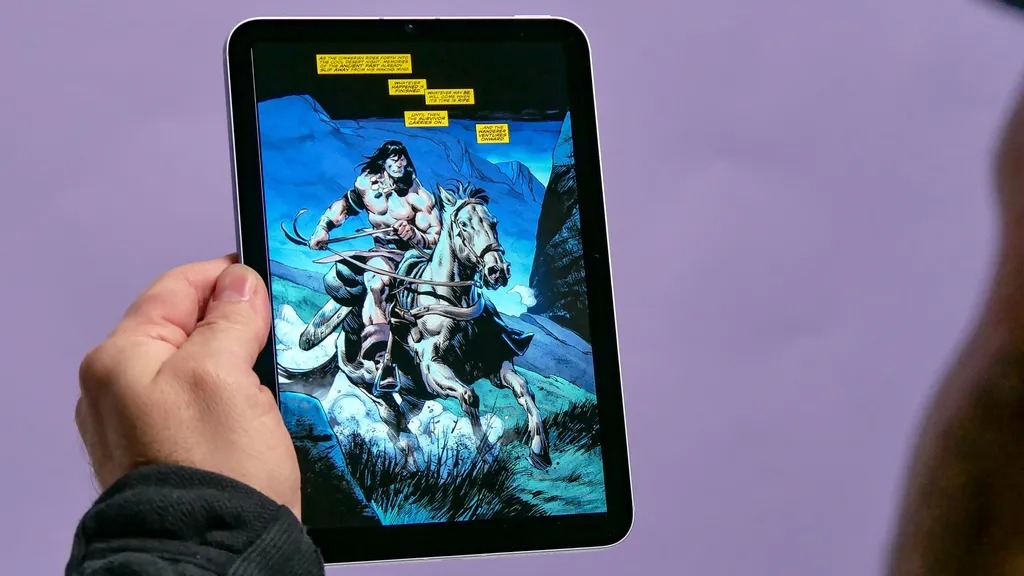
Portability is one of the major selling points of tablets, for business professionals and students alike.
The Lenovo Chromebook Duet 11 Gen 9 is impressively light and thin. The tablet weighs just 1.12 pounds and is just 0.3 inches thick. Unfortunately, it does have slightly thick bezels and comes in just one colorway: Luna Gray.
The Apple iPad Air comes in two form factors, though we only have testing data for the 13-inch model. The larger tablet weighs only 1.36 pounds despite having a larger display and measures just 0.24 inches thick. It also has slightly slimmer bezels and comes in four color options: Space Gray, Blue, Purple, and Starlight.
Apple has always had clean, slick designs and the iPad Air (M2) is no exception. It also comes in two fun quirky colors. So this one will have to go to the iPad.
Winner: Apple iPad Air 13 (M2)
Lenovo Chromebook Duet 11 Gen 9 vs Apple iPad Air 13 (M2): Display
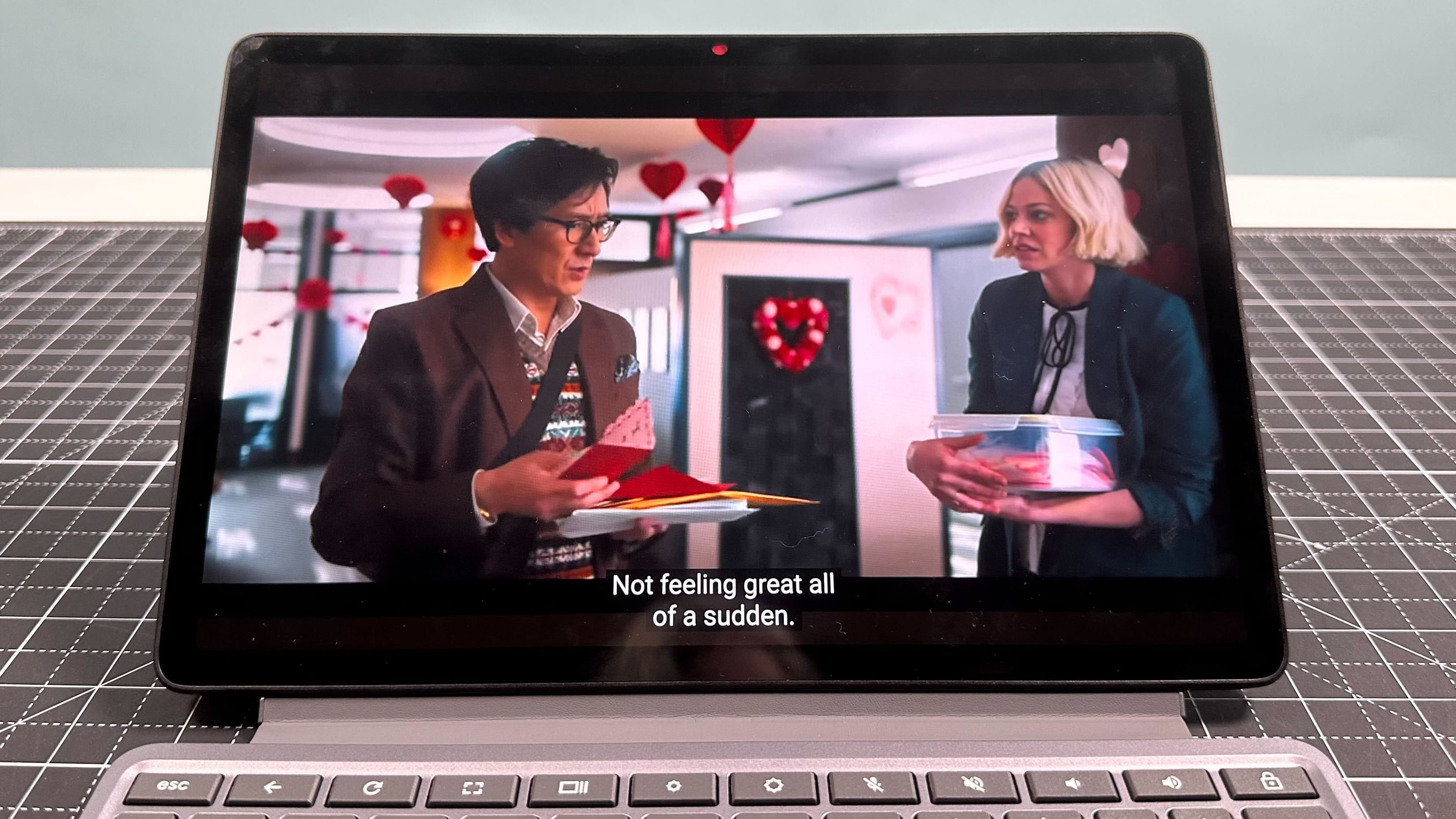
When using any piece of technology, you spend most of your time staring at the display, so you obviously want something that's pretty to look at.
TheThe Lenovo Chromebook Duet 11 and Apple iPad Air 13 have glossy display panels. However, the iPad Air's Liquid Retina display does have a higher resolution. The Chromebook Duet 11 features a WUXGA (1,920 x 1,200) IPS panel, while the iPad Air 11 has a Liquid Retina (2,360 x 1,640) display, and the iPad Air 13 has a Liquid Retina (2,732 x 2,048) display. So you've got more pixels on the iPad across the board. Both the Chromebook and iPad displays were easy on the eyes in our hands-on testing, though there were some differences regarding the lab benchmarks.
The Lenovo Chromebook Duet 11 covered 83% of the DCI-P3 color gamut with a Delta-E accuracy of 0.33, while the iPad Air 13 covered just 78.6% of the DCI-P3 color gamut with an accuracy of 0.27. So, both tablets are rather color-accurate, but the Chromebook Duet is just a bit more vibrant.
As far as brightness is concerned, the iPad wins with a peak brightness of 572 nits, though the Chromebook Duet hits a respectable 402 nits.
This category goes to the Chromebook Duet 11, thanks to its edge on color vibrancy. While the iPad Air does offer a higher resolution display and has an eye-searing max brightness of 572 nits, in most cases you won't need that extra brightness, though the nearly 5% difference in vibrancy is worth the lowered pixel count.
Winner: Lenovo Chromebook Duet 11 Gen 9
Lenovo Chromebook Duet 11 Gen 9 vs Apple iPad Air 13 (M2): Performance
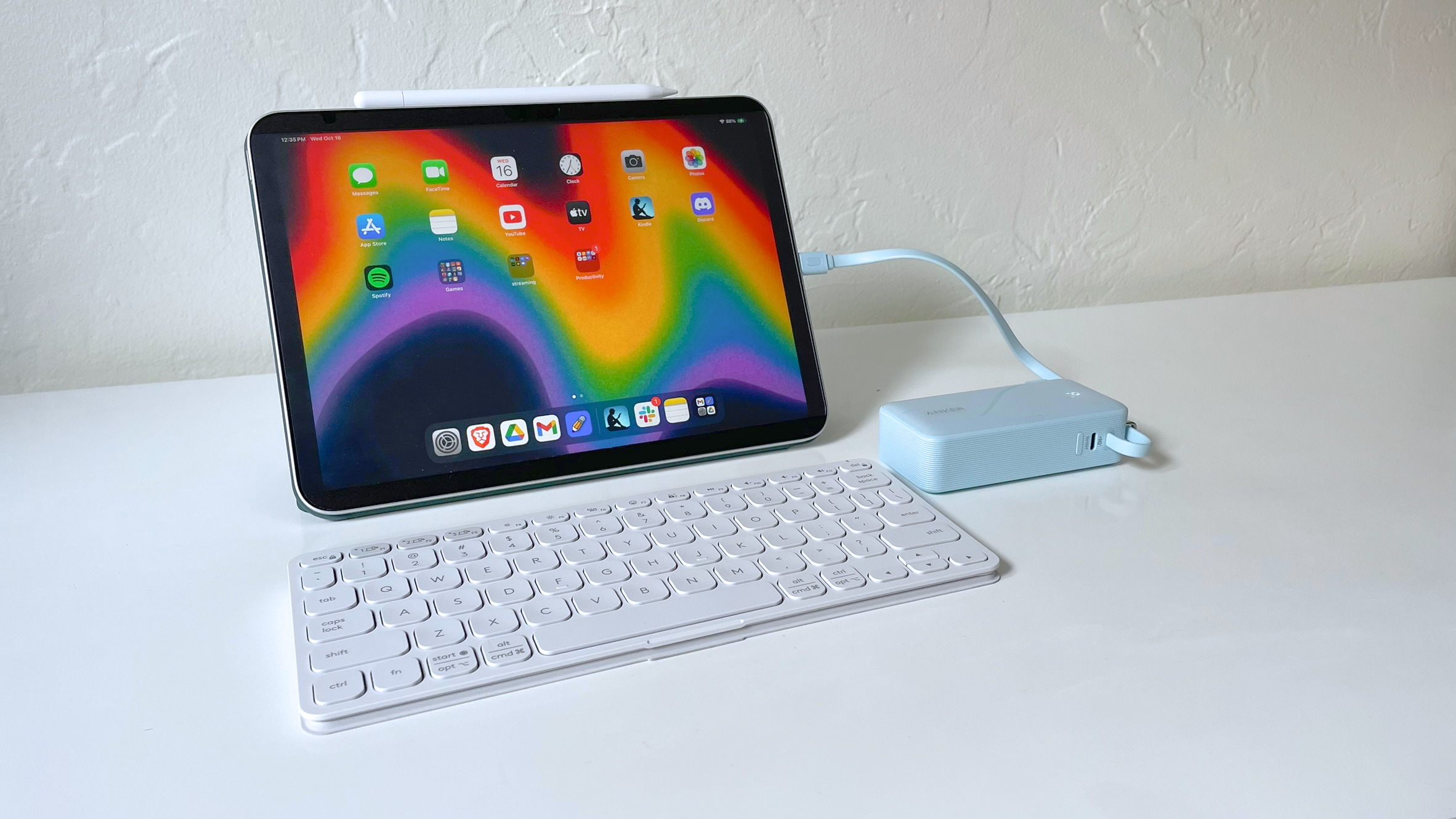
Tablets aren't exactly powerhouse machines, but you do need enough juice to get you through your daily tasks.
The iPad Air's M2 8-core CPU is almost too much power for a tablet, and combined with 8GB of onboard RAM, you get blisteringly fast performance on all of our benchmarks. The Chromebook Duet 11's MediaTek Kompanio 838 processor gets you a pretty decent bit of performance, but it isn't nearly as snappy as the iPad. Because the Duet only has 4GB of memory, you may run into memory bandwidth issues.
Because of its limited memory capacity, we were unable to run Geekbench 6 on the Chromebook Duet though future OS updates may allow that to change. Meanwhile, the iPad Air maintained impressive Geekbench 6 scores with a single-core average of 2,600 and a multicore score of 10,066. The Chromebook Duet 11's Geekbench 5 performance was on the quick side for a Chromebook, with a single-core average of 775 and a multicore score of 2,025. While we can't do a direct comparison between Geekbench 5 and Geekbench 6 scores, it's pretty obvious the iPad Air 13's M2 chipset has a major performance advantage.
This was further supported by the Jetstream 2 scores between both tablets. The browser benchmark was run on Safari on the iPad and Chrome on the Duet 11. The iPad Air scored 337.419 points while the Duet 11 scored just 114.301 points.
While the Duet's performance is good for a Chromebook, it absolutely pales in comparison to the iPad Air.
Winner: Apple iPad Air 13 (M2)
| Tablet | Geekbench 5 single-core | Geekbench 5 multicore | Geekbench 6 single-core | Geekbench 6 multicore | Jetstream 2 |
|---|---|---|---|---|---|
| Lenovo Chromebook Duet 11 Gen 9 | 775 | 2,025 | N/A | N/A | 114.301 |
| Apple iPad Air 13 (M2) | N/A | N/A | 2,600 | 10,066 | 337.419 |
Lenovo Chromebook Duet 11 Gen 9 vs Apple iPad Air 13 (M2): Graphics and gaming
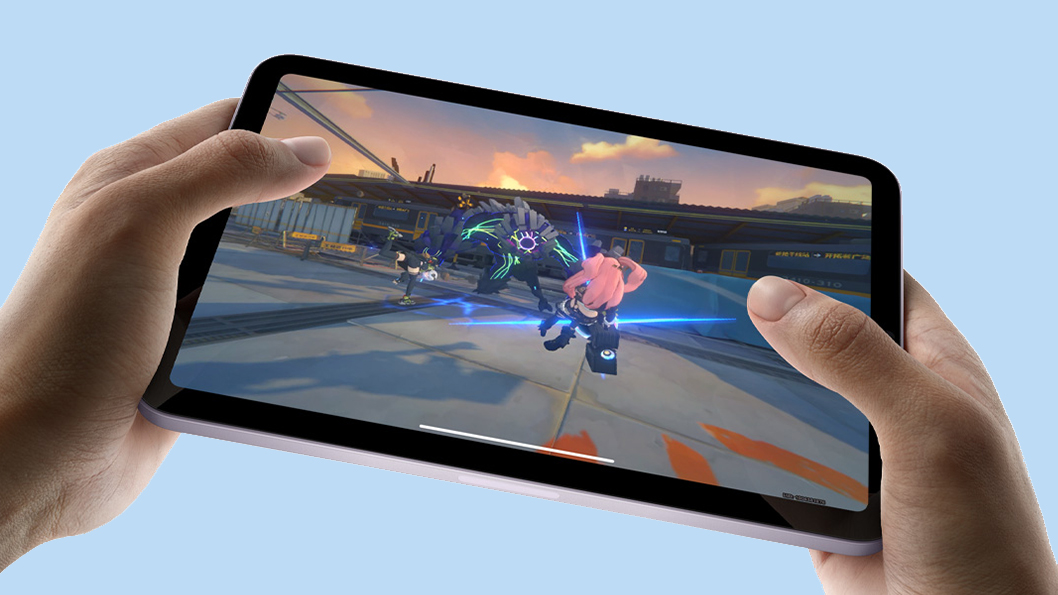
If you like to game on the go, a tablet isn't likely your first choice of gaming platform. Handheld gaming PCs are on the rise for a reason, and smartphones are better suited for touch-screen controls. However, you can connect a Bluetooth controller or a keyboard and mouse to your tablet for gaming. There is technically nothing stopping you.
So if you do want to do some casual gaming on a tablet, the iPad Air's M2 9-core GPU is the way to go. Because the Chromebook Duet 11 has only 4GB of onboard RAM, plenty of mobile games don't run well while the iPad Air has laptop-level gaming performance.
As far as benchmarks go, we ran 3DMark Wild Life on both tablets and the results didn't come as a surprise. The Apple iPad Air 13 (M2) maxed out the Wild Life benchmark with a frame rate of 60fps. The Lenovo Chromebook Duet 11 Gen 9 scored 1,740 points with a frame rate of 10.4fps.
You can use the Chromebook Duet 11 for cloud gaming using services like Nvidia's GeForce Now or Boosteroid. But if you want to game on-device without the latency of cloud gaming services, the iPad Air is definitely the way to go.
Winner: Apple iPad Air 13 (M2)
| Tablet | 3DMark Wild Life Score | 3DMark Wild Life Frame Rate |
|---|---|---|
| Lenovo Chromebook Duet 11 Gen 9 | 1,740 | 10.4 fps |
| Apple iPad Air 13 (M2) | Maxed Out | 60 fps |
Lenovo Chromebook Duet 11 Gen 9 vs Apple iPad Air 13 (M2): Battery life
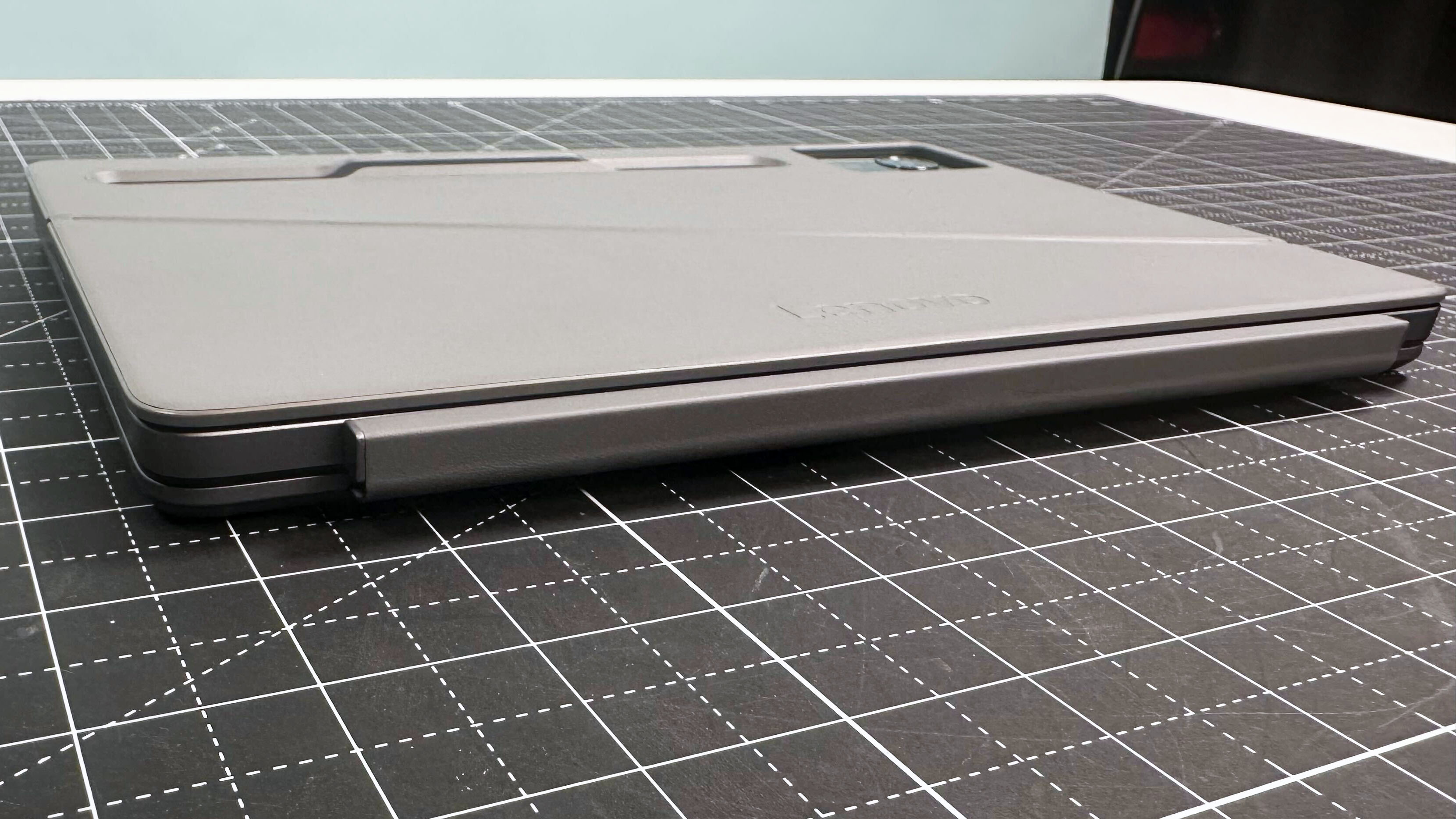
Battery life is one of the key metrics for laptops, tablets, and phones. These devices are designed to be used on the go, so it's imperative they offer a decent amount of battery life. Both the Lenovo Chromebook Duet 11 Gen 9 and Apple iPad Air 13 (M2) offer more than 8 hours of battery life which can get most people through a full day of work or play.
On the Laptop Mag battery test, we set the tablets to 150 nits of display brightness and set them to surf through a series of static, dynamic, and video web pages until the tablets ran out of battery life. The Apple iPad Air 13 lasted for 11 hours and 30 minutes on our web surfing battery test, while the Chromebook Duet lasted 9 hours and 47 minutes.
Unfortunately, we only have testing data for the Apple iPad Air 13 model, which does have a larger 37Whr (watt-hour) battery. The 11-inch iPad Air has a 29Whr battery, which is the same capacity as the Lenovo Chromebook Duet 11. It's possible the iPad Air 11 would be more comparable in battery longevity with the Chromebook Duet, but it could just as easily last as long as the 13-inch model. But, based on what we do know, the winner is the iPad Air 13 by over 90 minutes.
Winner: Apple iPad Air 13 (M2)
Bottom line
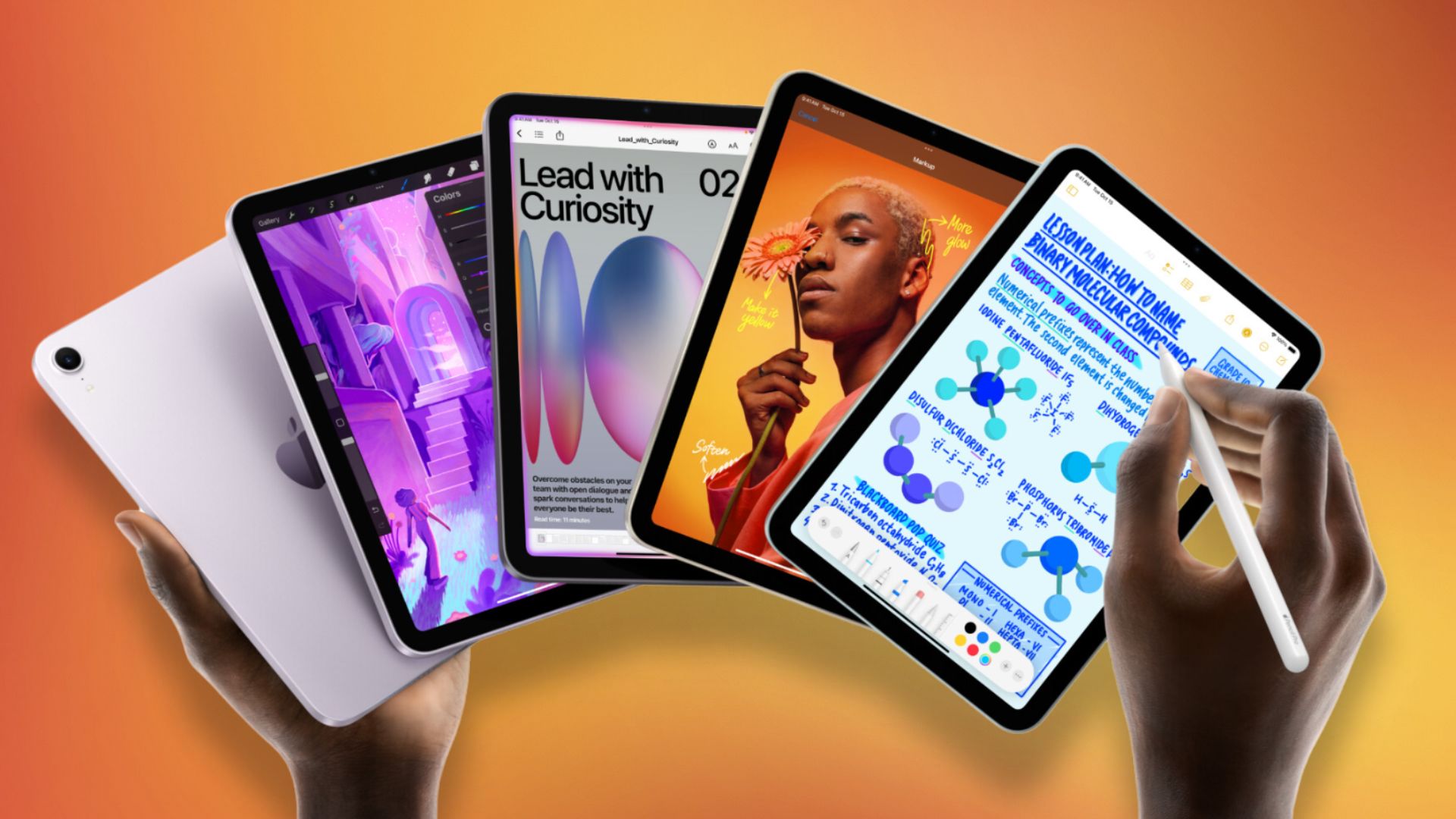
While there is plenty to recommend the Lenovo Chromebook Duet 11 Gen 9, when compared to the powerhouse M2 iPad Air 13, there's just no competition. The iPad has better design aesthetics, performance, graphics, and battery life.
So, if you have the budget for the iPad Air, it offers the best performance for the money.
However, if a $600 tablet isn't in the cards for you, the Lenovo Chromebook Duet 11 is the way to go. The Duet 11 has enough performance to satisfy most people's needs, solid battery life, a more vibrant display, and is significantly cheaper.
Winner: Apple iPad Air 13 (M2)
More from Laptop Mag
- Meta Quest 3S review: I'm shocked that affordable mixed reality looks this good
- Apple says a week-long marathon of Mac announcements is upon us
- How Qualcomm's feud with Arm could be a major blow to Copilot+ laptops

A former lab gremlin for Tom's Guide, Laptop Mag, Tom's Hardware, and TechRadar; Madeline has escaped the labs to join Laptop Mag as a Staff Writer. With over a decade of experience writing about tech and gaming, she may actually know a thing or two. Sometimes. When she isn't writing about the latest laptops and AI software, Madeline likes to throw herself into the ocean as a PADI scuba diving instructor and underwater photography enthusiast.
